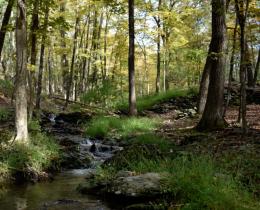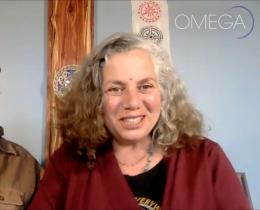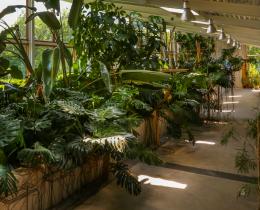Omega: What does a scary moment in the wild look like for you?
Les: A moment in which I become totally disoriented and do not have a plan or the knowledge of what I just got myself into.
Omega: What kind of training—mental and physical—do you do to prepare for your show?
Les: I try to stay physically fit in a natural kind of way by running through the bush with a pack on, climbing hills, and pushing through the trees. Then I head back home where I do some strength conditioning with weights. Psychologically, I stay grounded by being grateful for things in my life and the opportunities and life experiences I am granted, including survival. I remind myself that my work can inspire people and positively influence their lives.
Omega: What is your favorite wild meal? And what is your favorite meal when you come back from the wilderness?
Les: Fish is my favorite survival food. When I come home often the first meal is a pizza.
Omega: How does knowing basic survival skills help fuel someone’s spiritual practice?
Les: To do these basic skills, we need to touch the earth, to use our hands to feel the soil and the bark and the leaves and the rock, which are all essentially the "skin" of the earth. Within the earth lies our healing. Separated as we mostly are from experiencing the earth and its vibrant powerful energy, we are on a course that will lead to eventual species destruction. This is not new news, just what many scientists predict. When we learn earth skills they serve as a metaphor for our own spiritual survival.
Omega: What practices help keep you grounded when you are in a survival situation?
Les: I make it a practice at the beginning of each day to be grateful for the many wonderful things in my life. Then, as I work and survive throughout the day, I remember to be thankful for the trees that give me their life, the ground that makes for my ease of travel, the rocks that give me strength, and in these ways I can travel throughout the wilderness knowing that the spirits of the land welcome me.
Omega: What advice do you have for those who are afraid of nature or being alone into the wilderness?
Les: For one, they should be very cautious of going it alone in the wilderness. It is neither a benevolent place nor a malevolent place, it just is what it is, and you are going to perish if you have not prepared yourself for basic human survival. Take courses in survival, edible plants, and wilderness travel. You cannot become proficient at survival without teachers. Books will not give you the whole story and neither will TV shows.
Omega: What can everyday people do to connect more fully with nature if they don’t have access to wild or remote areas?
Les: It is very easy. Go to a park and spend 10 minutes a day close to a tree or in the grass with your shoes off. Just breathe and take in the energy of the natural world—forest bathing, so to speak. In most cases it doesn’t take long to find a ravine or tiny, forested area. My go-to place to reconnect with the forest used to be under a major highway, but it did the trick.
Omega: How does your love of nature influence your music?
Les: My love for nature has given my music a purpose. I can always write about social or political topics, or love, but it is the songs that come to me that celebrate the earth (or are a warning or call to action regarding our treatment of the earth) that make me feel like I'm living my life's mission.
Omega: Do your music and filmmaking influence one another or are they separate ways to express your creativity?
Les: They are completely separate outlets for my creativity. They seem to use different creative muscles and I love that, but music wins the day if I could choose only one.
Omega: What advice would you give to someone just starting out in their career and learning to pursue their passions?
Les: The first step is to find your passion. Not all of us have a clear, burning desire from a young age, so it might take experimenting. Try all kinds of things, including just getting a "job," though ultimately there is no "job" that can substitute for pursuing your passion. I like to ask people: if you had your druthers and could do whatever it is you want to do in life, what would it be? Then start to move toward that goal until a different or better path comes into focus. For those who know exactly what they want, they should work toward it step-by-little-step every day of their life. Our purpose is to be happy. I enjoy going after the things that make me happy. If you are not doing that, then exactly what are you doing?



